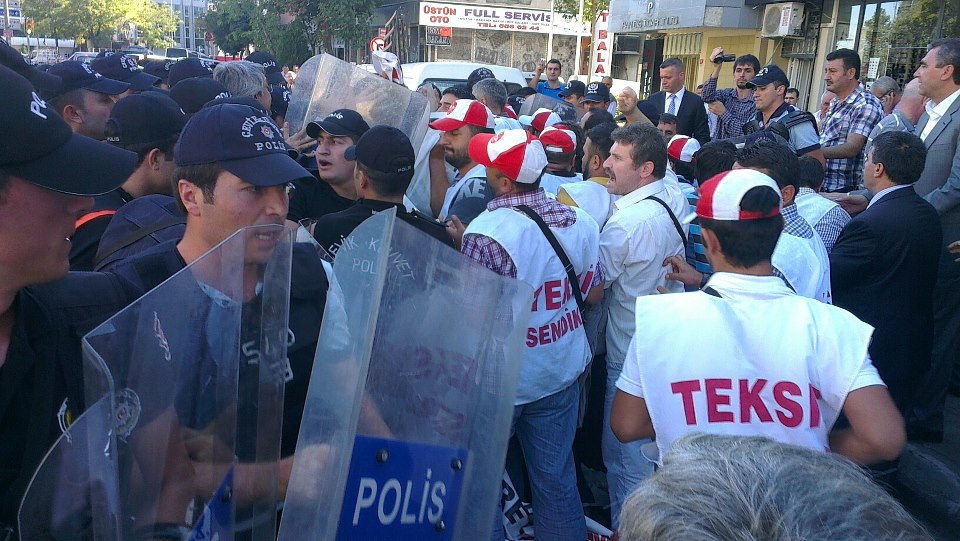12 June, 2014A new report from the Clean Clothes Campaign is further evidence that the garment industry supply chain is unsustainable and unjust, no matter where it is in the world.
The report, ‘Stitched Up’, released 11 June, surveyed garment workers in Turkey and Eastern Europe producing clothes for labels such as Hugo Boss, Adidas, Zara and H&M in 10 different countries.
It found that garment workers in the area were subject to poverty wages, poor working conditions and long working hours, mirroring the experiences of workers in other parts of the world.
Some three million people are employed in the garment industry in Turkey, Georgia, Bulgaria, Romania, Macedonia, Moldova, Ukraine, Bosnia & Herzegovina, Croatia and Slovakia.
Jenny Holdcroft, policy director at IndustriALL Global Union, which represents garment unions in the surveyed countries, said:
It comes as no surprise that workers in Turkey and Eastern Europe are subjected to similar poor wages and working conditions as those in countries such as Bangladesh or Cambodia. The sourcing model for the garment industry is based on paying the lowest possible wages and so is fundamentally flawed. Made in Europe is not a guarantee of better rights or wages for garment workers.
The survey found a considerable gap between the legal minimum wage and the estimated minimum living wage in all the countries. The report said:
Jobs with such a tremendously low wage create poverty rather than fighting it.
A seamstress in Belarus spoke of working 0.45 Euro per hour embroidering blouses for Zara for a contract that had been outsourced by a Greek agent. In some cases, workers told of growing their own vegetables and doing a second job in order to survive. Others complained of damage to their eyesight after sewing for long days without breaks.
The report also found that garment workers, the majority of whom are women, suffer sexual harassment, discrimination in pay and treatment, and limited union representation.
A Croatian unionist stated that “unions do not have the opportunity to bargain for higher wages since they have to constantly fight illegal practices such as long-term unpaid overtime and unpaid social contributions or long-term unpaid wages.”
Holdcroft said:
“The report’s findings are a reflection of the endemic practices throughout the global garment industry. Wages are squeezed through brand purchasing practices and furthermore the absence of collective bargaining leads to a reliance on the legal minimum wage, which is in many cases a poverty wage."
Read the report.
